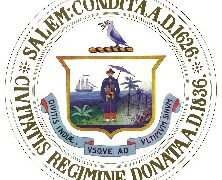SALEM – Salem State’s annual Darwin Festival is a weeklong event that celebrates the work of Charles Darwin, with sessions from leading researchers celebrating the field of biology and its impact on today’s world.
2023 Darwin Festival
The 2023 Darwin Festival will take place Monday, February 13 through Friday, February 17, with two guest speakers each day: one at 11 am and one at 2 pm.
All in-person talks will be held in Vets Hall, Ellison Campus Center, North Campus. All talks will be streamed and can be viewed remotely. Events are free and open to the public.
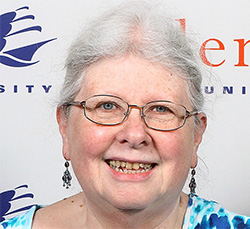
Susan Case, Emeritus Professor of Biology, Salem State University
11 am
Founder’s Lecture: “From so simple a beginning: the Darwin Festival at 44”
“From so simple a beginning…” traces the origin and development of Salem State’s Darwin Festival over 44 years, by examining the role of mentors, networking, technology and unexpected contingencies, both in Darwin’s life and in the Festival.
Sponsored by Salem State University Biology Department and the Charles Albert Read Trust
This talk will be presented both in-person in Veterans Hall and streamed online. No pre-registration is necessary for the in-person event. To receive the webinar link, please register here.
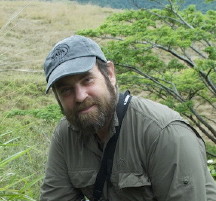
Les Kaufman, Professor of Biology, Boston University
2 pm
Note: this presentation is webinar only.
“Evolution In The Anthropocene: How will life’s capacity to adapt to global change reshape the world of our children?”
Life is being challenged as never before by humanity’s rapid and profound reorganization of Earth’s ecosystem. This talk features stories of shock and hope that bear on life’s capacity to restore, while we are still on this planet, what our species has thrown into chaos. Dr. Kaufman studies the creation, maintenance, and destruction of biological diversity, and humanity’s shifting role in the biosphere that supports us.
Sponsored by the Salem State Scuba Club and the Charles Albert Read Trust
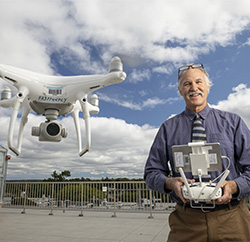
Stephen Young, Professor of Geography, Salem State University
11 am
“Impacts of Climate Change. They have only just begun.”
Each year we are seeing more and more impacts from climate change. Dr. Young’s presentation will explain why we are seeing these impacts and what we can expect in the future. Dr. Young will also discuss his recent research about climate change in New England and will end the talk highlighting climate change education and activities by Salem State University students.
Sponsored by the Salem State University Geography and Sustainability Department, the Salem State University Earth Days Planning Committee and the Charles Albert Read Trust
This talk will be presented both in-person in Veterans Hall and streamed online. No pre-registration is necessary for the in-person event. To receive the webinar link, please register here.
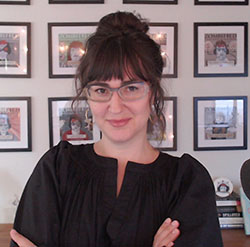
Athena Aktipis, Associate Professor of Psychology, Arizona State University
2 pm
Note: this presentation is webinar only.
“The Cheating Cell: How Evolution Helps Us Understand and Treat Cancer”
When we think of the forces driving cancer, we don’t necessarily think of evolution. But evolution and cancer are closely linked because the historical processes that created life also created cancer. The Cheating Cell delves into this extraordinary relationship, and shows that by understanding cancer’s evolutionary origins, researchers can come up with more effective, revolutionary treatments.
Sponsored by the Salem State University Biological Society and the Charles Albert Read Trust
Wednesday, February 15
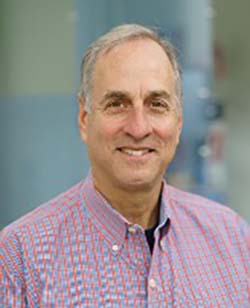
Dan Distel, Professor and Director of the Ocean Genome Legacy Center, Northeastern University
11 am
“Life in an ancient undersea forest: the secrets of a marine ecosystem powered by wood.”
Sometime in the late Pleistocene, sea level rose and buried a coastal bald cypress forest beneath the sea floor. The trees and wood were preserved under the sediment for the next 60,000 years until recently exposed by hurricane waves. Once uncovered the ancient wood formed the foundation of one of the most unique marine environments ever discovered. The site now hosts a diverse marine community, fueled by wood, and dominated by wood-eating bivalves and other wood-associated marine invertebrates. I will discuss the diversity of organisms that thrive in this environment and the special role played by wood-eating bivalves (shipworms) and the cellulolytic bacteria that enable their unusual woody diet.
Sponsored by the Salem State University Chemistry and Physics Department and the Charles Albert Read Trust
This talk will be presented both in-person in Veterans Hall and streamed online. No pre-registration is necessary for the in-person event. To receive the webinar link, please register here.
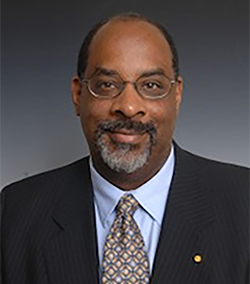
Joseph L. Graves, Professor of Biological Sciences, North Carolina Agricultural and State University
2 pm
Note: this presentation is webinar only.
“A Voice in the Wilderness: A Pioneering Biologist Explains How Evolution Can Help Us Solve our Biggest Problems.”
Evolutionary science has long been regarded as conservative, a tool for enforcing regressive ideas, particularly about race and gender. But in A Voice in the Wilderness, evolutionary biologist Joseph L. Graves Jr.—once styled as the “Black Darwin”—argues that his field is essential to social justice. He shows, for example, why biological races do not exist. He dismantles recent work in “human biodiversity” seeking genes to explain the achievements of different ethnic groups. He decimates homophobia, sexism, and classism as well.
Sponsored by the Salem State Biology Department and the College of Arts and Sciences
Register in advance for this webinar.
6-9 pm
Biology and Chemistry Alumni Event: register here
Thursday, February 16
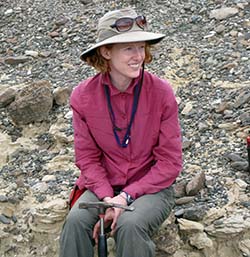
Catherine Beck, Chair and Associate Professor of Geosciences, Hamilton College
11 am
“Reconstructing Environments of the Past: In what conditions did our ancestors survive and thrive?”
From the earliest primates to modern humans, our history as a species has been characterized by environmental change and variability. Through studying the geological record we can reconstruct the past environments associated with fossil primates and hominins. This allows us to build and test hypotheses about how climatic and tectonic processes shaped the eastern African ecosystems in which our species evolved and ultimately migrated from to colonize the globe.
Sponsored by the Salem State University Geological Sciences Department and the Charles Albert Read Trust
This talk will be presented both in-person in Veterans Hall and streamed online. No pre-registration is necessary for the in-person event. To receive the webinar link, please register here.
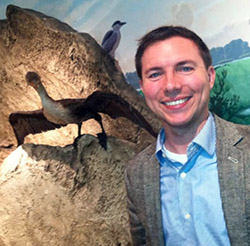
Daniel Ksepka, Curator of Science, Bruce Museum, CT
2 pm
“Penguins, Past and Present”
Penguins evolved more than 60 million years ago. The rich fossil record of these birds has revealed unexpected forms such as giant (300lb+) penguins, spear-billed penguins, and penguins with red and grey feathers. These fossils provide a window into how penguins lost flight and adapted to changing environmental conditions such as drifting continents, reorganization of Southern Ocean currents, and the onset of glacial-interglacial cycles. Increasingly, scientists are combining fossil data with observations from living penguins to gain a synthetic understanding of penguin evolution. Just this year, the complete genomes of all living penguins were sequenced, providing once unimaginable insight into species boundaries, aquatic adaptations to everything from vision to metabolism, and even population expansions and crashes during the last Ice Age.
Sponsored by the Salem State University Biology Department and the College of Arts and Sciences
This talk will be presented both in-person in Veterans Hall and streamed online. No pre-registration is necessary for the in-person event. To receive the webinar link, please register here.
Friday, February 17
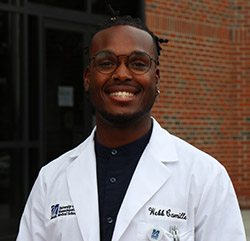
Webb Camille, MD/PhD 3rd Year Candidate, UMass Medical Center, alumnus
11 am
“What is the role of citrullination in ALS?”
Amyotrophic lateral sclerosis (ALS) is a devastating neurodegenerative disease. Degeneration of motor neurons occurs because of toxic protein aggregation. Protein Citrullination (PC) is altered dynamically in the spinal cord during disease progression and accumulates in protein aggregates. This presentation aims to discuss what is currently known and uncover novel proteins that are citrullinated in ALS.
Sponsored by the Salem State Biology Department and ThermoFisher Scientific
This talk will be presented both in-person in Veterans Hall and streamed online. No pre-registration is necessary for the in-person event. To receive the webinar link, please register here.
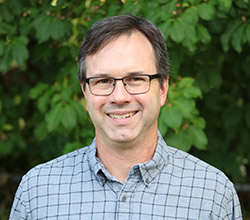
Jason Brown, Associate Professor of Biology, Salem State University
2 pm
“Cilia, diseases, and organelle assembly – Leeuwenhoek’s ‘little legs’ in the spotlight”
Cilia are hair-like structures extending from many cell types including single-celled organisms and cells throughout the human body. Multiple human diseases, the ciliopathies, are caused by defective cilia. In recent decades, much underlying ultrastructural and biochemical complexity of these important organelles has been discovered, but many questions remain unanswered. Dr. Brown will discuss cilia assembly, the ciliopathies, and the work he and his students have been doing to understand the mechanism of cilia gene regulation.
Sponsored by the Salem State Biology Department and ThermoFisher Scientific
This talk will be presented both in-person in Veterans Hall and streamed online. No pre-registration is necessary for the in-person event. To receive the webinar link, please register here.
Founded in 1980 by Philip A. DePalma and Virginia F. Keville.
Questions?
Interested in the 2023 Darwin Festival? Contact Ryan Fisher for more information.




